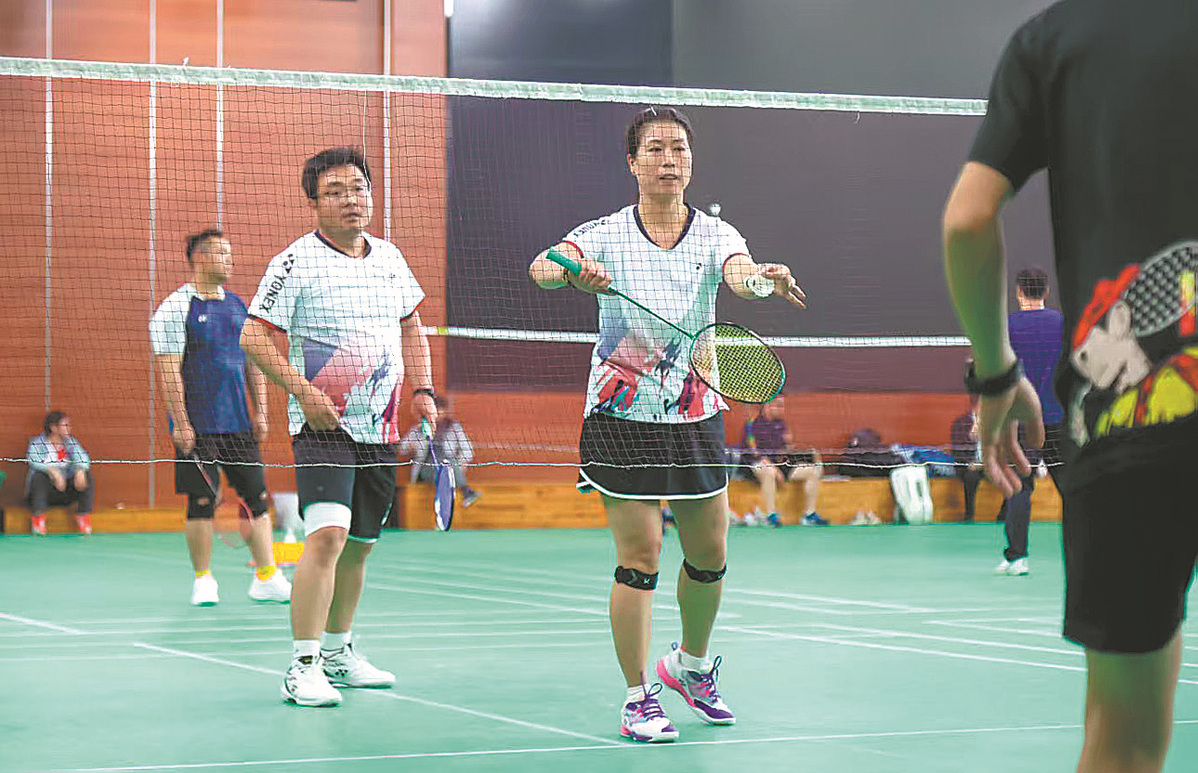Nation's badminton boom sends shuttlecock prices soaring
Shortage of duck, goose feathers along with greater player participation spikes demand


Ducks versus demand
The price of shuttlecocks will continue to increase unless synthetic shuttlecock technology improves or the poultry industry produces more ducks that are raised through traditional 75-day farming methods, said Wang Haijun, manager of Beijing Tianyuan Qikang Sports Products Co.
Today's fast-grown ducks don't yield usable feathers, he explained. "It's not just shuttlecocks, the price of badminton products like rackets, started climbing noticeably after pandemic restrictions were lifted in 2023," he added.
Wang's company distributes equipment for major brands including Yonex. He attributes the badminton boom to people becoming more health-conscious after the pandemic.
His company's annual sales have jumped from 500 million yuan before the pandemic to nearly 800 million yuan today, with badminton products leading the expansion over tennis and basketball equipment.
However, manufacturers have struggled to keep up with demand. "While player numbers may have doubled, factory capacity has only increased by 15 to 20 percent at best," Wang explained.
The badminton industry is not self-contained and relies heavily on the poultry sector for raw materials.
According to the Badminton World Federation, the feathers used in shuttlecock production — known as "blade feathers" — come from the fourth to tenth feathers on the wings of geese and ducks. Each of these birds yields about 14 usable blade feathers, and because the curvature of feathers differs between left and right wings, crafting a single high-quality shuttlecock typically requires feathers from two to three birds from the same side, according to experts.
This quirky production demand has been compounded by market fluctuations in the pork and poultry industries in recent years.
In 2023, an oversupply of pork led to a drop in pork prices, which in turn suppressed demand for goose and duck meat.
The commercial supply of ducks declined from over 4.87 billion in 2019 to an estimated 4.22 billion in 2024, according to the China Animal Agriculture Association. Similarly, the commercial supply of geese fell from 634 million to 569 million over the same period.
This contraction in supply directly impacted feather availability, driving up prices. The wholesale price of blade feathers rose from around 200 yuan per jin (500 grams) in 2023 to 300 yuan per jin in 2024.
Soaring consumer demand and tightening raw material supplies joined hands to steadily push shuttlecock prices higher.
























